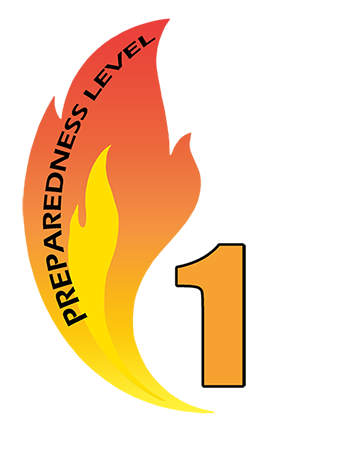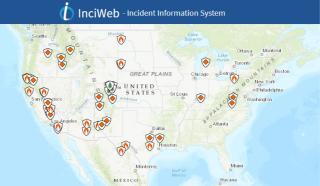Public Fire Information Websites
National Wildland Fire Preparedness Level (PL)

The National Wildland Fire Preparedness Level was lowered to Preparedness Level 1 on Friday, October 10, 2025, at 7:30 a.m. Mountain Time.
Fuels and fire weather conditions continue to improve across most Geographic Areas. There are a limited number of mobilizations occurring. Support for new and ongoing incident operations can occur within the individual Geographic Areas.
Further information on National Wildland Fire Preparedness Levels 1 - 5 can be found on the NIFC Website (PDF, 936 KB).
InciWeb
InciWeb is an interagency all-risk incident information management system. The web-based program provides information for wildland fire emergencies and prescribed fires, but can also be used for other natural disasters and emergency incidents such as earthquakes, floods, hurricanes, tornadoes, etc.
The system was developed with two primary missions:
Provide the public a single source of incident related information; and
Provide a standardized reporting tool for the public affairs community
Official announcements include evacuations, road closures, news releases, maps, photographs, and basic information and current situation about the incident.
Interactive Wildfire Map
Get the latest incident specific wildfire data, including personnel count, cost, acres, percent contained and structures threatened, from the National Wildfire Coordinating Group's map.
National Interagency Fire Center
The National Interagency Fire Center (NIFC), located in Boise, Idaho, is the nation's support center for wildland firefighting. Eight different agencies and organizations are part of NIFC. Decisions are made using the interagency cooperation concept because NIFC has no single director or manager.


